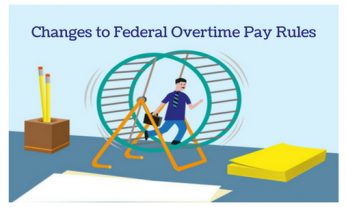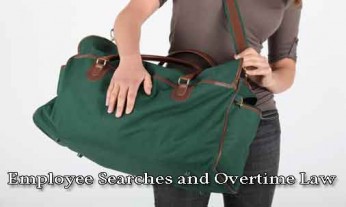 Changes to federal overtime pay rules implemented by the US Department of Labor (DOL) take effect December 1st of this year. It is anticipated to impact over four million white-collar workers who previously earned salaries that exceeded overpay rule thresholds, with nearly 400,000 of those workers residing in California.
Changes to federal overtime pay rules implemented by the US Department of Labor (DOL) take effect December 1st of this year. It is anticipated to impact over four million white-collar workers who previously earned salaries that exceeded overpay rule thresholds, with nearly 400,000 of those workers residing in California.
Just what, exactly, do the new overtime pay rules mean for California workers?
The most critical change to the overtime pay rule involves the annual salary threshold: Although the previous federal threshold was only $23,660, the new minimum is significantly higher, topping out at over $47,000. That amount also exceeds the California state maximum annual earning cap of $41,600.
What are Basic Overtime Pay Requirements?
Employers are expected to pay minimum wage or more for the first 40 hours worked in a week, and overtime pay at one and one-half times the regular rate for all hours beyond 40. In California, the number of hours worked in a day is considered in addition to the number of hours worked in a week.
Are There Exceptions to the Overtime Pay Rules?
Doctors, teachers, and lawyers are all exempted from the overtime rules laid out by the Fair Labor Standards Act (FLSA). Executives who supervise at least two employees and have hiring/firing authority are exempted, as well as individuals involved in outside sales and certain persons who work with computers. Finally, salaried employees whose pay is not flexible or based on quantity or quality of work may be exempted from the overtime pay rules. Each classification of employee has several qualifying points, making the exemption determination somewhat complex.
Can Salaried Employees Expect Overtime Pay?
Assuming one meets the qualifications, the short answer is yes. Consider too that overtime pay for one earning a salary would necessarily include all aspects of the salary package—not simply a sum based on a calculation of hourly wages. While record keeping obviously facilitates an understanding of overtime hours, time clocks are not required.
Are Government Workers Entitled to Overtime Pay Remuneration?
Government workers do not have a blanket exemption with regard to overtime pay, and, in fact, FLSA provides specific guidance with regard to compensatory time (comp time) for government workers. Essentially, comp time may be earned at the same rate as overtime pay, meaning that an employee who worked 50 hours in one week earned 10 hours of overtime, or the equivalent of 15 hours of comp time.
Do Negotiated Agreements Supersede these Overtime Pay Rules?
It is possible for employees to engage in collective bargaining and determine other frameworks for overtime pay. [Read more…]

